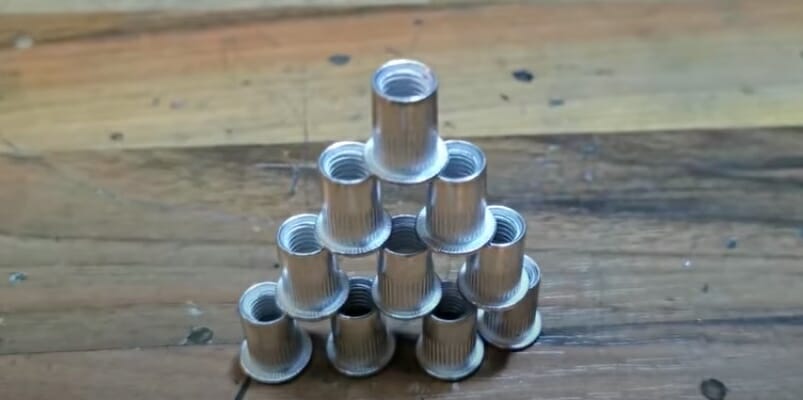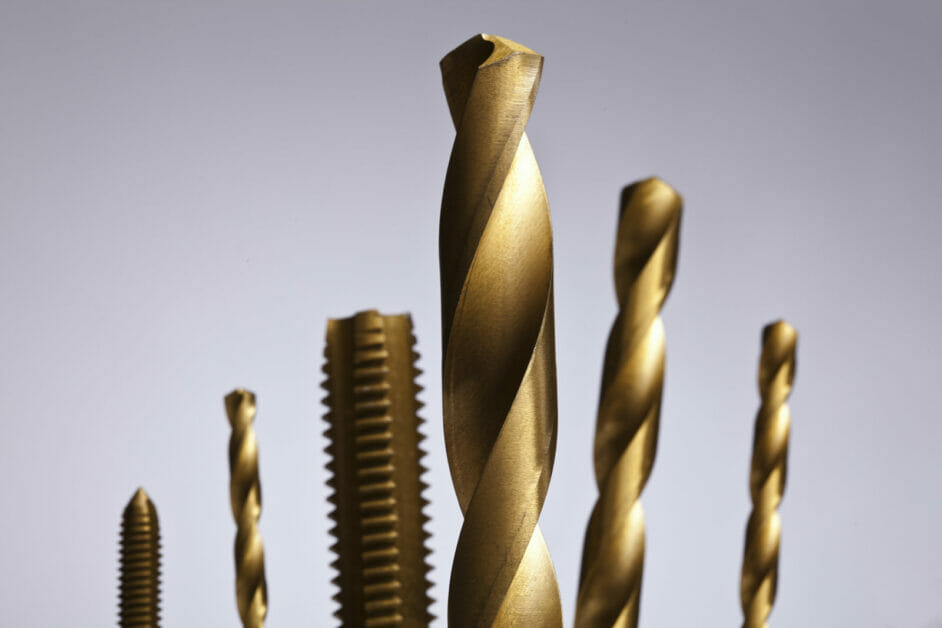What Size Drill Bit For a 1/4-20 Rivnut?

Are you wondering what size drill bit you need for a 1/4-20 rivnut? I know picking the right drill bit size for this task can feel like a guessing game, but fear not!
Generally, the appropriate drill bit size for a 1/4-20 rivnut drill is between 0.354″ and 0.356.” The size could vary slightly depending on the specific rivnut brand or type you are using. Also, consider factors such as the material you’re drilling into, which could impact the installation process.
I will go into more detail below.
Drill Size for 1/4-20 Rivnut

Let’s first make sure we understand what we’re dealing with. A 1/4-20 Rivnut is a threaded insert that creates strong, secure connections in materials like metal or plastic.
The “1/4” refers to the diameter, and the “20” indicates the thread count per inch (or UNC – Unified National Coarse). Choosing the right drill size is important for a proper fit and easy installation.
Regarding the drill size for a 1/4-20 Rivnut, there is some variation depending on the material used.
The suggested hole size ranges from 0.354″ to 0.356″ for aluminum spline nuts.
But first, let me give you a cool trick: I always test the hole size on a scrap piece of the same material I’m working with to ensure the fit is snug and secure.
It’s essential to keep in mind how crucial the drill bit size is when setting up your project. Select the wrong size, and you could end up with a sloppy fit or even damage to your material.
Review the suggested hole size and test it before jumping in. It’s all about getting the perfect fit, and you’ll be good to go!
Drill Size for 1/4-20 Rivnut Based on Material Type

| Material Type | Suggested Drill Size for 1/4-20 Rivnut |
|---|---|
| Aluminum | 0.354″ – 0.356″ |
| Steel | 0.375″ – 0.380″ |
| Stainless Steel | 0.360″ – 0.365″ |
| Plastic | 0.350″ – 0.355″ |
| Composite Material | 0.365″ – 0.370″ |
| Other Material (if any) | 0.370″ – 0.375″ |
Note: Before using it on your project, test the hole size on a scrap piece of the same material. The drill size can vary based on specific revenue brands, manufacturing tolerances, and project requirements.
Comparison of Common Drill Bit Types

| Drill Bit Type | Best Used For | Not Ideal For | Suggested Drill Bit Size for 1/4-20 Rivnut |
|---|---|---|---|
| Twist Drill Bits | General Purpose, Variety of Materials | Very Hard Materials | 0.354″ – 0.356″ |
| Step Drill Bits | Sheet Metal, Creating Graduated Hole Sizes | Hard Metals, Precise Drilling | 0.354″ – 0.356″ (requires precise control) |
| Masonry Drill Bits | Concrete, Stone | Metal, Wood | Not Applicable |
| Spade Drill Bits | Wood, Light Materials | Metal, Precise Drilling | Not Applicable |
For “Suggested Drill Bit Size for 1/4-20 Rivnut”, the sizes indicated are the generally recommended sizes for aluminum 1/4-20 rivnuts.
For the “Not Applicable” entries, it suggests that those types of drill bits are generally not suitable for drilling a hole for a 1/4-20 rivnut.
It’s also worth noting that the exact sizes can vary based on the specific material and application, and users should always refer to the rivnut manufacturer’s guidelines or perform practical tests if possible.
References
Organizations:
- American National Standards Institute (ANSI). https://ansi.org/
Books:
- Machinery’s Handbook by Erik Oberg
- Audel Machine Shop Basics by Rex Miller
Websites:
- Practical Machinist. https://www.practicalmachinist.com/
